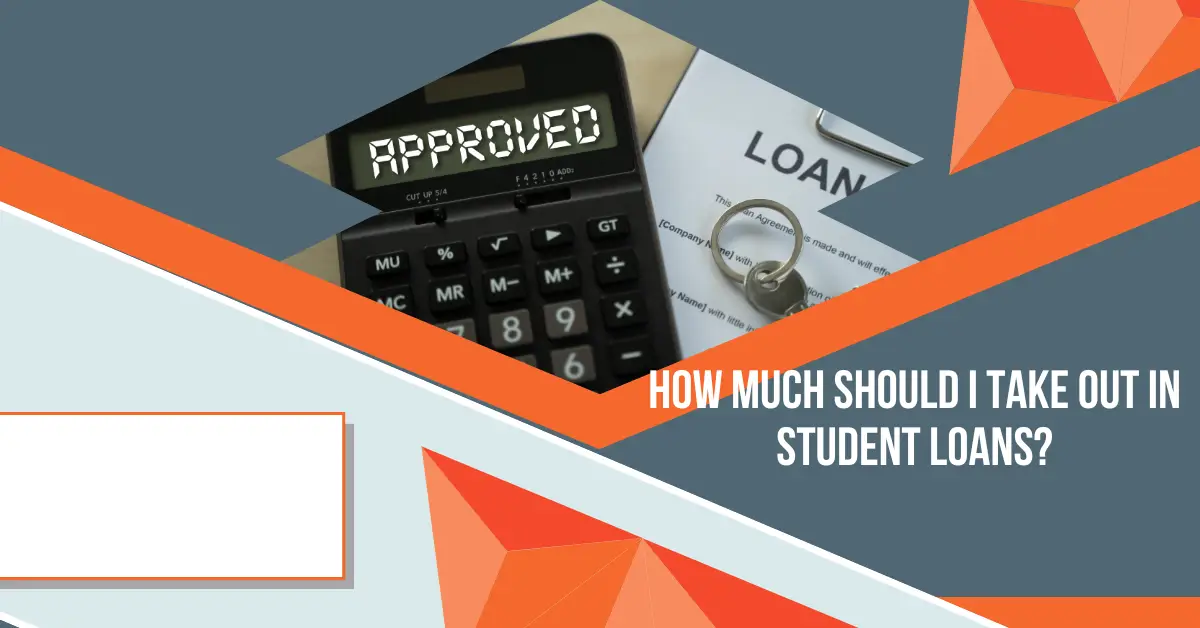You might be able to get a student loan for as much as the total cost of your college education, but the exact amount will depend on the type of loan you get.
Dependent undergraduates can borrow up to $31,000 and independent undergraduates can borrow up to $57,500 in federal student loans. Many private loans also have lifetime limits.
No matter how much you can borrow, you should only borrow what you need. Interest costs more money the more you borrow.
To get a rough idea of how much you’ll need to borrow, add up your tuition and fees, housing, books, supplies, and food costs, then subtract any other aid you’ve received.
How Much Should I Take Out in Student Loans?
Even though there are limits on how much you can borrow for a student loan, you don’t have to borrow the most if you don’t need it.
Depending on the loan terms, it could take years to pay off the debt, and the longer it takes, the more interest you pay, so it’s usually best to only borrow what you need.
Generally, keep your monthly student loan payment to around 10 percent of what you expect to make after taxes the first year after graduation.
For instance, if you bring home $2,800 a month after taxes, your student loan payments shouldn’t be more than $280.
The Bureau of Labor Statistics may help you determine how much you will make after you graduate, and a student loan calculator can help you determine how much you will have to pay back based on the amount you borrowed and the interest rate.
Check out some other new content we’ve published:
Can You Increase Your Student Loan Amount?
Private lenders probably won’t let you borrow more than their limits, and even if you’re going to an expensive school, you can’t borrow more than the federal student loan limits.
If you or your parents are willing to take out a PLUS loan, you might be able to close the gaps that way.
Remember that Parent PLUS loans have the highest interest rates of all federal loans and could lead to more high-interest debt.
What Happens if You Don’t Use All of Your Student Loans?
If you don’t spend all your student loan money, you should return it to your lender. This lowers your total debt and the interest you have to pay.
The office in charge of your financial aid should be able to help you with this. You can keep the money for the next semester if you’d like.
But if the money comes from a federal loan that is not subsidized or a private loan, interest will be added while the money is in your bank account.
You should return it to the lender and wait until you need the cash to get a new loan. This will help you pay less interest.
If you think this is interesting, please share it with your friends. For more updates and the latest news regarding schools, go to blhsnews.com.
Patricia Gault is a seasoned journalist with years of experience in the industry. She has a passion for uncovering the truth and bringing important stories to light. Patricia has a sharp eye for detail and a talent for making complex issues accessible to a broad audience. Throughout her career, she has demonstrated a commitment to accuracy and impartiality, earning a reputation as a reliable and trusted source of news.
Contents


